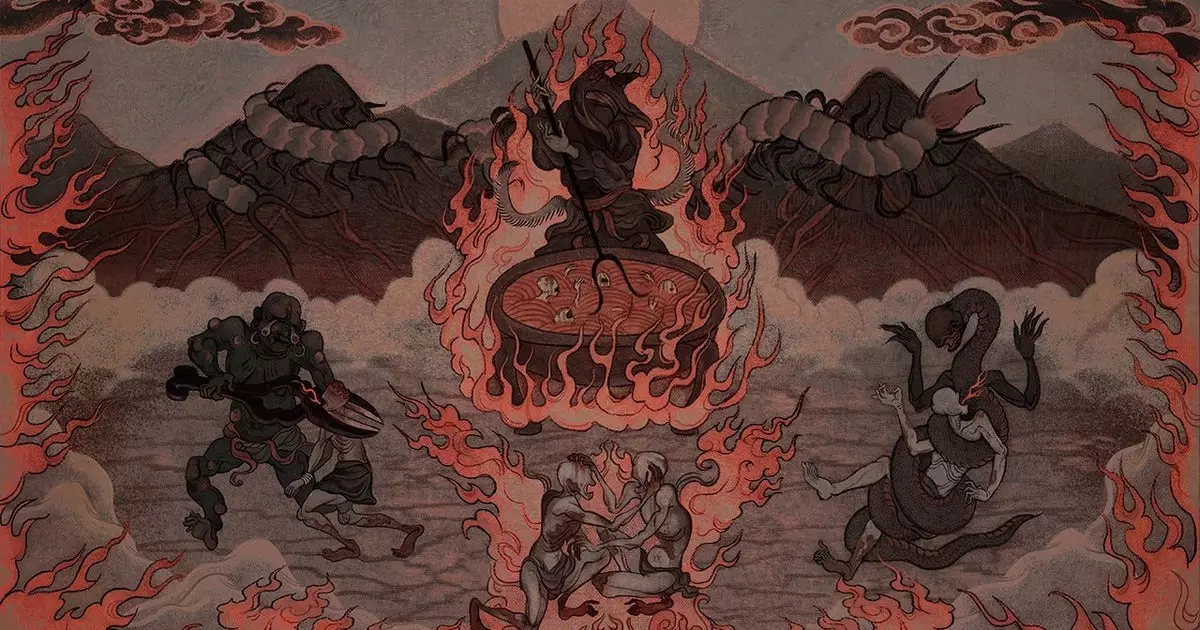In the ever-evolving landscape of indie horror games, “Labyrinth Of The Demon King” emerges as a haunting gem, eliciting a visceral response from players through its suffocating atmosphere akin to classics like “Silent Hill” and “Amnesia: The Dark Descent.” This game artfully interlaces gruesome horrors with archaic Japanese mythology, forming an unsettling tapestry that resonates with those who appreciate the genre’s roots. Released just this week, the game dares players to traverse a nightmarish rendition of feudal Japan, where dread lurks behind every shadow and malevolent creatures await to tear you asunder.
What sets this game apart is its unapologetic embrace of despair. The environments are drenched in a heavy mantle of decay, with every creaking floorboard and dismal corner inviting players into an abyss that feels all too real. The narrative thrust revolves around a revived sense of relentless urgency: an expedition fueled not merely by the desire to vanquish a formidable yokai boss, but by the desperate quest for survival within a hostile realm.
A Frantic Dance with Madness
Upon entering the game’s woeful world, players adopt the role of a vengeful warrior with a mundane arsenal: a battered katana, some dubious medicinal supplies, and a bottle of sake, the contents of which might just be adequate for fortifying morale rather than physical prowess. The initial encounter reveals a grotesque menagerie of enemies—mangled beings with unsettling vocalizations that oscillate between fear and anger. It’s in these desolate encounters that the player feels less like a protagonist and more like prey in a world that mimics a grotesque masquerade of madness.
The combat mechanics echo the stamina-based systems reminiscent of older RPGs, which can sometimes feel clunky in high-stakes scenarios. As you struggle to fend off enemies with your crumbling weaponry, every swing feels heavy, imbuing the combat with a sense of dread. Players soon realize that conserving energy is crucial, as each confrontation not only threatens health points but also raises the stakes for survival itself.
Exploration in a Chaotic Landscape
Exploration becomes a precarious tightrope act. The game unfolds within dilapidated houses abundant with grotesque inhabitants lurking in the shadows. Unsettling whispers beckon from dank corners, and players find themselves compelled to investigate treacherous rooms heavy with the stench of decay. Attempts at scavenging for valuable items are rewarded with equally punishing encounters with the bizarre and grotesque.
A particularly amusing yet frustrating aspect is the key retrieval quest from a cat, an amusing twist that adds dark humor to the otherwise grim surroundings. This quest encapsulates the essence of the game: even the most mundane task can spin wildly into chaotic territory, as adorable doesn’t necessarily equate to benevolent. Players’ interactions are underscored by a pervasive sense of unease—be it the risk of facing an unexpected ambusher or encountering the eerie trappings of the environment.
Atmospheric Depth and Retro Vibes
What “Labyrinth Of The Demon King” achieves in spades is a mastery of atmosphere—drawing its players into an enveloping dread that feels refreshingly retro. The visual aesthetic, reminiscent of the PS1 era, resonates deeply with nostalgia. The pixelated textures and jarring dithering effects recreate an authentic feeling of foreboding that stands as a tribute to survival horror legacy.
Additionally, the soundscape is masterfully crafted, where every creak and whisper builds tension that can almost be tangibly felt. These unnerving auditory cues evoke a heightened response in players, serving to push every emotion to the brink of its boundaries. The pacing is intentionally sluggish, cementing a pervasive sense of hesitation—a reminder that progress often comes at a steep price.
While its design may not be polished by mainstream standards, the beauty of “Labyrinth Of The Demon King” lies in its unrefined charm. It transforms every moment into a palpable experience of survival, constantly urging players to confront their most primal fears. In a world teeming with horror tropes, it offers a uniquely gritty experience marked by genuine creativity—a stark reminder of the terrifying possibilities that lie within the dark corners of our imaginations.


Leave a Reply